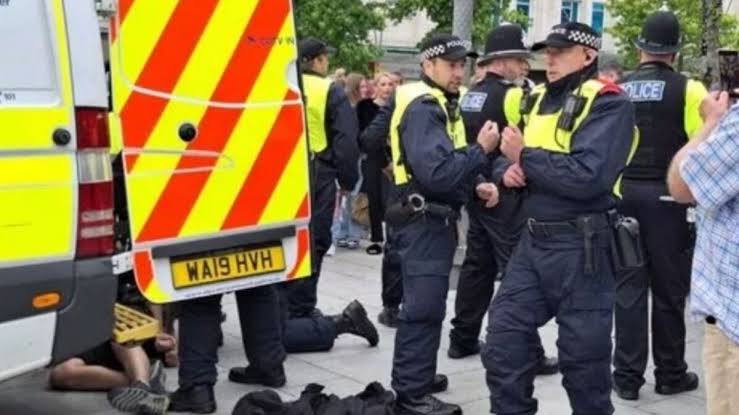Far-right riots are still going on in the UK, and nearly 400 people have been arrested this week.
Far-right violence has gotten worse across the UK, where nearly 400 people have been arrested in a week of heavy fights and riots. There have been disturbances in a number of places, such as Belfast, Darlington, and Plymouth, where far-right groups have fought with police. People are worried about the growing power of radical groups and how hard it is for law enforcement to keep the peace with this rise in violence.
Trouble started in Belfast on Monday night, when riots broke out. Protesters with far-right views fought with police, causing a lot of damage to property and arresting many people. Things quickly got worse when rebels and police started fighting more, which meant that more resources had to be used to bring order back. The violence in Belfast is part of a worrying trend in Northern Ireland that terrorism is growing and things are becoming less stable.
Similar things happened in Darlington, which is in the northeast of England, where far-right groups planned protests that turned violent when they ran into police. During the fights, several people were arrested and hurt, which showed how hard it is for local police to handle such tense situations. The trouble in Darlington is part of a larger trend of unrest caused by extremist groups that want to use societal tensions to further their own goals.

Scenes from the far-right riots: Belfast, Darlington, and Plymouth face intense clashes.
A lot of trouble also happened in Plymouth, a port city in the south. Far-right rioters fought with police in a number of violent events. Violence is happening all over the UK, and the fights in Plymouth show how hard it is for police in different parts of the country. Because of the rioting in Plymouth and other places, security has been tightened and the police presence has been increased to keep things from getting worse.
The latest wave of violence has made people more aware of how far-right groups are becoming more powerful in the UK. In the past few years, these groups have become more active, often motivated by nationalist and anti-immigrant rhetoric. This has led to more hate crimes and public protests. The far-right agenda, which is against diversity and immigrant communities, has gained ground in many parts of the country. This has made social differences worse and contributed to the recent rise in violence.
Law enforcement is having a hard time dealing with far-right violence while also keeping the public safe and in order. A lot of people were arrested during the recent riots, which shows that the police are doing their job well but also shows how big the problem is. Strategies are being put in place by the government to stop more violence and counter the impact of extremist groups.
The effects of these riots go beyond just worrying about public safety. There is a lot of fear and tension in the air because of the violence, which has broken up neighborhoods and damaged property. The continued fights also show bigger problems in society, like growing racism and political division. To solve these problems, we need a unified plan that includes working with the community, preventing problems, and having good law enforcement.
Violence spreads across the UK: Far-right protests lead to numerous arrests and ongoing unrest.
In conclusion, the recent wave of far-right riots in the UK, in which almost 400 people were arrested, shows how serious the problem of extreme violence is becoming. The fights in Belfast, Darlington, and Plymouth show how widespread the unrest is and how hard it is for police to keep the peace. Even though far-right groups are still causing bloodshed, getting to the bottom of extremism and making sure everyone is safe are still very important goals for both the government and the people they serve.